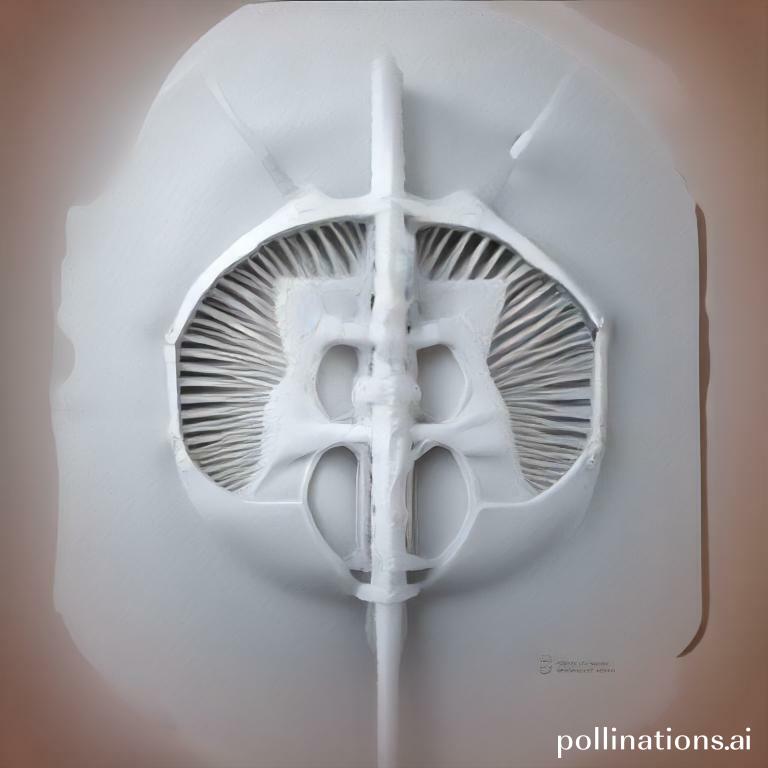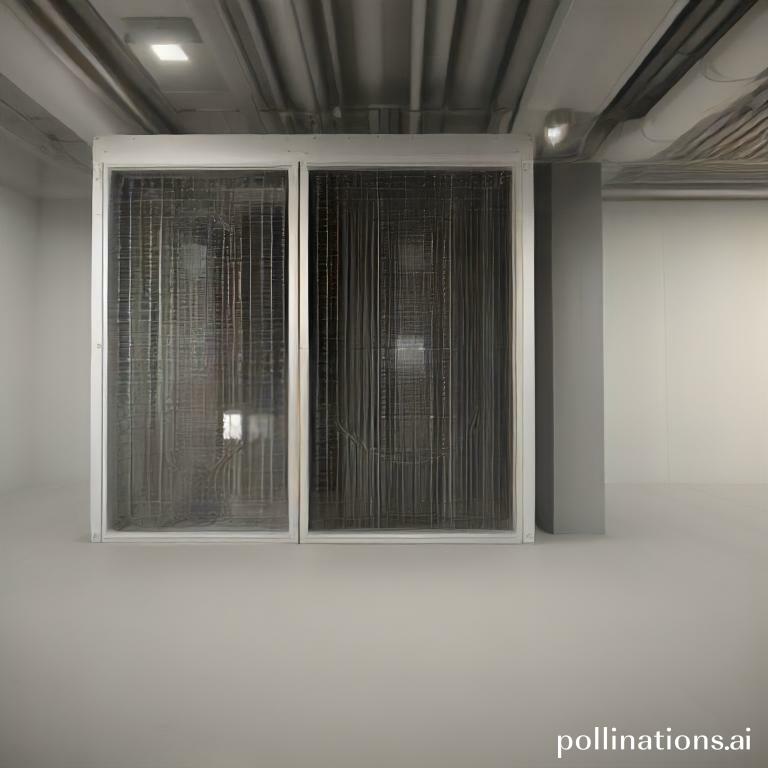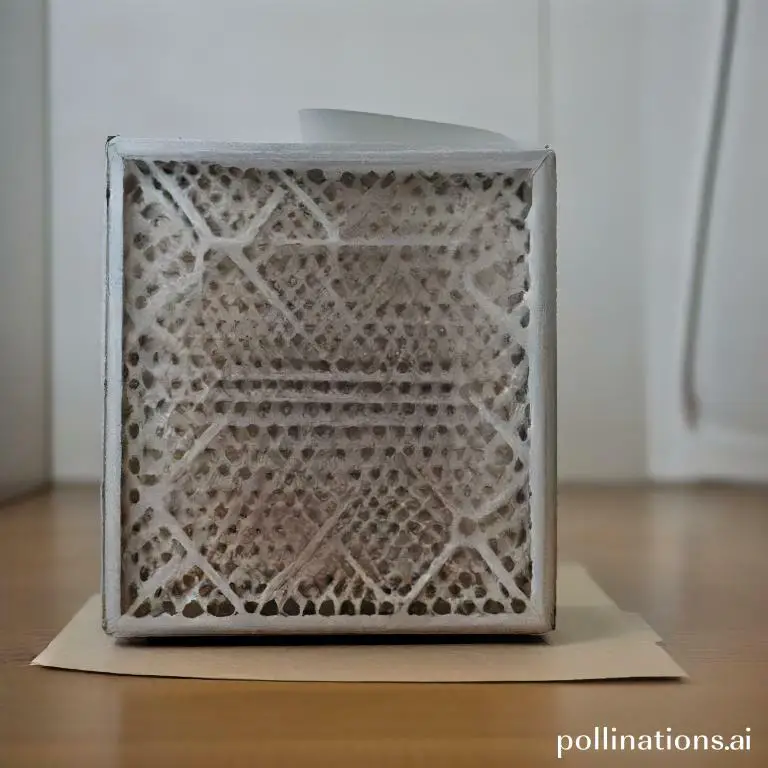
Check Out The Exclusive Deals Waiting For You! ∇
No products found.
The Role of Air Filters in Indoor Air Quality
Indoor air quality is a crucial aspect of a healthy living environment. One of the key components in maintaining clean and pollutant-free indoor air is the use of air filters. Air filters play a vital role in removing pollutants and ensuring that the air we breathe is fresh and free from harmful substances.
1. How Air Filters Remove Pollutants
Air filters are designed to capture and trap various types of pollutants present in the air. These pollutants include dust, pollen, pet dander, mold spores, and even harmful gases. The filters consist of a fibrous material that acts as a physical barrier, preventing these particles from circulating in the indoor air. As the air passes through the filter, the pollutants get trapped, resulting in cleaner air.
2. Types of Pollutants Filtered by Air Filters
Air filters are capable of filtering a wide range of pollutants, making them essential for maintaining good indoor air quality. Common pollutants that air filters can remove include allergens like pollen and dust mites, smoke particles, volatile organic compounds (VOCs) emitted by cleaning products or furniture, and even bacteria and viruses. By effectively removing these pollutants, air filters help reduce the risk of respiratory problems and allergies.
3. Impact of Clean Air Filters on Allergies and Asthma
Clean air filters can significantly benefit individuals with allergies and asthma. When air filters are regularly cleaned or replaced, they ensure that allergens and irritants are effectively removed from the air. This can reduce the frequency and severity of allergy symptoms, such as sneezing, coughing, and congestion. For those with asthma, clean air filters can help minimize asthma attacks triggered by airborne pollutants.
4. Improving Indoor Air Quality with Regular Filter Changes
To maintain optimal indoor air quality, indispensable to regularly change air filters. Over time, filters can become clogged with trapped pollutants, reducing their effectiveness. By replacing filters according to the manufacturer’s recommendations, you can ensure that your air filtration system continues to function efficiently, providing clean and fresh air for your home or office.
| Pollutants Removed by Air Filters | Benefits of Clean Air Filters |
|---|---|
| Dust | Reduces respiratory problems |
| Pollen | Minimizes allergy symptoms |
| Smoke particles | Improves air quality for non-smokers |
| Volatile organic compounds (VOCs) | Reduces exposure to harmful chemicals |
| Bacteria and viruses | Creates a healthier living environment |
Energy Efficiency and Cost Savings
Dirty air filters can have a significant impact on energy efficiency. When air filters become clogged with dust, dirt, and other pollutants, they restrict the airflow in HVAC systems. This restriction forces the system to work harder to maintain the desired temperature, leading to increased energy consumption.
How Dirty Air Filters Affect Energy Efficiency
When air filters are dirty, they create a barrier that prevents the free flow of air through the system. This results in decreased ventilation and reduced airflow, causing the HVAC system to strain in order to maintain the desired temperature. As a result, the system consumes more energy, leading to higher utility bills.
Decreased Energy Consumption with Clean Air Filters
Regularly cleaning or replacing air filters can significantly decrease energy consumption. Clean air filters allow for better airflow, reducing the strain on the HVAC system. With improved ventilation, the system operates more efficiently, resulting in lower energy usage and cost savings.
Cost Savings from Regular Filter Maintenance
Calculating Potential Savings from Clean Air Filters
Calculating the potential savings from clean air filters involves considering various factors such as the size and efficiency of your HVAC system, the cost of energy in your area, and the frequency of air filter maintenance. By keeping your air filters clean, you can potentially save a significant amount of money on your energy bills each year.
| Factors | Potential Savings |
|---|---|
| Improved energy efficiency | Reduced energy consumption |
| Lower utility bills | Cost savings |
Extending the Lifespan of HVAC Systems
1. Preventing Damage to HVAC System Components
In order to extend the lifespan of your HVAC system, it is crucial to prevent damage to its components. Regular maintenance and inspections can help identify any potential issues before they escalate into major problems. By scheduling routine check-ups with a professional technician, you can ensure that all the vital parts of your HVAC system are in optimal condition.
One of the key components that require attention is the air filter. A clogged or dirty air filter can restrict airflow and put unnecessary strain on the system, leading to decreased efficiency and potential breakdowns. Regularly replacing or cleaning the air filter can significantly improve the performance of your HVAC system and prevent damage to other components.
2. Increased Efficiency and Performance with Clean Air Filters
Clean air filters not only prevent damage but also elevate the efficiency and performance of your HVAC system. When air filters are clogged with dust, dirt, and other psections, the system has to work harder to circulate air, resulting in increased energy consumption and higher utility bills.
3. Avoiding Costly Repairs and Replacements
Proper maintenance and care of your HVAC system can help you avoid costly repairs and replacements. Neglecting routine maintenance can lead to minor issues turning into major malfunctions, which can be expensive to fix.

DIY vs. Professional Air Filter Maintenance
In the realm of air filter maintenance, there are two options to consider: DIY or hiring a professional HVAC technician. Each method has its own advantages and disadvantages, and it’s important to weigh them carefully to make an informed decision.
1. Step-by-Step Guide to DIY Air Filter Replacement
If you’re a handy individual who enjoys tackling home maintenance tasks, DIY air filter replacement might be the right choice for you. By conforming to a simple step-by-step guide, you can easily replace your air filter on your own.
- Start by turning off your HVAC system to ensure safety.
- Locate your air filter, which is usually found near the air intake.
- Remove the old filter and dispose of it properly.
- Insert the new filter, making sure it fits snugly.
- Turn your HVAC system back on and enjoy improved air quality.
2. Benefits of Hiring a Professional HVAC Technician
At the same time DIY air filter replacement can save you money, there are certain benefits to hiring a professional HVAC technician:
- Expertise: HVAC technicians have the knowledge and experience to handle air filter maintenance effectively.
- Efficiency: Professionals can quickly and efficiently replace your air filter, minimizing downtime.
- Thorough Inspection: A professional technician can also inspect your HVAC system for any other issues that may require attention.
- Peace of Mind: By hiring a professional, you can have peace of mind knowing that the job is done correctly.
3. When to Seek Professional Assistance
Meanwhile DIY air filter replacement is suitable for many homeowners, there are certain situations where professional assistance is necessary:
- Complex Systems: If you have a complex HVAC system or are unsure about the replacement process, it’s best to hire a professional.
- Limited Mobility: Individuals with limited mobility may find it challenging to perform DIY air filter replacement.
- Allergies or Respiratory Conditions: If you or someone in your household suffers from allergies or respiratory conditions, it’s crucial to have a professional ensure the air filter is properly installed and functioning.
| DIY Air Filter Replacement | Professional HVAC Technician |
|---|---|
| Cost-effective | Expertise and efficiency |
| Requires basic skills | Thorough inspection |
| Quick and easy | Peace of mind |

Choosing the Right Air Filters
Pertaining to maintaining clean and healthy air in your home or office, choosing the right air filters is crucial. With so many options available, it can be overwhelming to determine which ones are the most effective. In this section, we will scrutinize the important factors to consider when selecting air filters, as well as the different types available and their efficiency.
1. Perceiving MERV Ratings
One of the key factors to consider when choosing air filters is their MERV rating. MERV stands for Minimum Efficiency Reporting Value and it indicates how well the filter can remove psections from the air. The higher the MERV rating, the more efficient the filter is at capturing smaller psections. It is recommended to choose a filter with a MERV rating of at least 8 to effectively remove common pollutants.
2. Different Types of Air Filters and Their Efficiency
There are various types of air filters available in the market, each with its own advantages and efficiency levels. Let’s take a look at some of the most common types:
- Fiberglass Filters: These filters are affordable and capture larger psections effectively. Although, they may not be as efficient in removing smaller psections.
- Pleated Filters: Pleated filters have a larger surface area, allowing them to capture more psections. They are available in different MERV ratings, providing options for various filtration needs.
- HEPA Filters: High Efficiency Particulate Air (HEPA) filters are known for their exceptional efficiency in removing airborne psections. They are highly recommended for those with allergies or respiratory conditions.
3. Factors to Consider When Selecting Air Filters
When choosing air filters, integral to consider your specific needs and circumstances. Here are some factors to keep in mind:
- Indoor Air Quality: Assess the air quality in your space and determine the level of filtration required.
- Allergies or Health Conditions: If you or your family members have allergies or respiratory conditions, opting for a higher MERV rated filter or a HEPA filter is advisable.
- Budget: Consider your budget and find a filter that balances cost-effectiveness with efficiency.
- Filter Replacement: Check the recommended replacement schedule for the filters you choose to ensure optimal performance.
Conclusion
Regularly changing air filters is crucial for maintaining good indoor air quality and ensuring the efficient functioning of HVAC systems. Dirty air filters can lead to increased energy bills, decreased system performance, and even health problems. It is recommended to change air filters every 1-3 months, depending on the type of filter and the level of air pollution in the environment. By taking the time to replace air filters, homeowners can improve the air quality in their homes and save money in the long run.
DIY enthusiasts can easily replace air filters themselves by upholding the manufacturer’s instructions and using the appropriate tools. Indispensable to choose the right type of filter for the HVAC system and to dispose of old filters properly. By making air filter replacement a regular part of home maintenance, homeowners can ensure that their HVAC systems run smoothly and that their families breathe clean, healthy air.
Read Also:
1. Best filters for HVAC systems
2. Understanding MERV ratings

